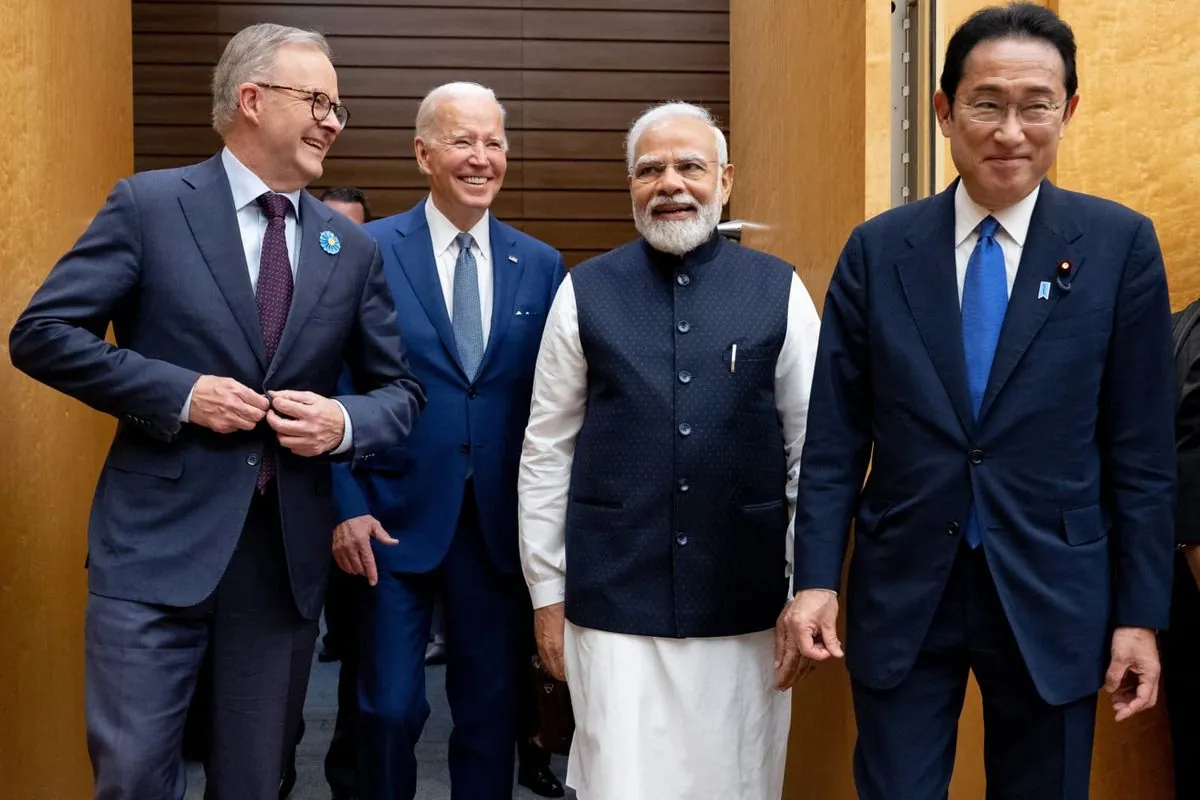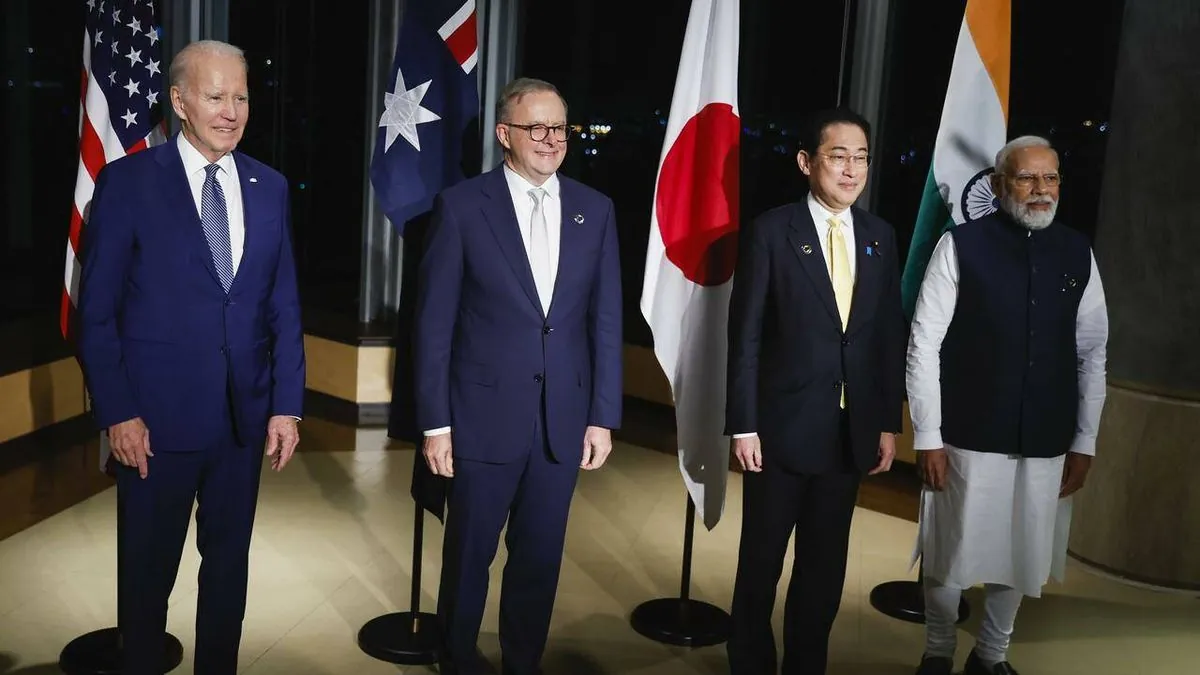Quad Leaders to Unveil New Indo-Pacific Security Measures in Wilmington
Quad nations set to announce expanded maritime initiatives and technology sharing in the Indo-Pacific. Meeting aims to solidify group's role amid leadership transitions and regional challenges.

In a significant diplomatic gathering, the leaders of the Quadrilateral Security Dialogue (Quad) are set to convene in Wilmington, Delaware, to unveil new security measures for the Indo-Pacific region. This meeting, scheduled for September 21, 2024, brings together the heads of state from Australia, India, Japan, and the United States, highlighting the group's commitment to regional stability and cooperation.
The Quad, initially formed in 2007 and revived in 2017, has evolved into a crucial platform for addressing shared concerns in the Indo-Pacific. This upcoming summit marks the sixth leaders' meeting since President Joe Biden elevated the group to summit level in 2021, underscoring its growing importance in international diplomacy.
Central to the discussions will be the expansion of the Indo-Pacific Partnership for Maritime Domain Awareness, launched two years ago. The leaders are expected to announce its extension to include the Indian Ocean region, a move aimed at enhancing maritime security and surveillance capabilities across a vast expanse from the east coast of Africa to the Pacific island nations.

A key initiative to be unveiled is a plan for joint coast guard operations. This innovative approach will see personnel from Australia, India, and Japan embarking on U.S. Coast Guard vessels, fostering closer cooperation and interoperability among the Quad nations' maritime forces. Additionally, the leaders will outline plans for increased military logistics cooperation, further strengthening the group's collective defense capabilities.
In response to the evolving technological landscape, the Quad will announce measures to provide critical and security technologies to Pacific Islands and Southeast Asia. This initiative, which includes the development of open radio access networks (O-RAN), aims to offer alternatives to the 11 countries of Southeast Asia and the 14 nations and 7 territories of the Pacific Islands region, areas where competition with China for influence has intensified.
The summit will also address health concerns, with a focus on combating cervical cancer, the fourth most common cancer among women globally. This health initiative exemplifies the Quad's commitment to addressing a wide range of issues beyond traditional security concerns.
"We're expecting this Quad summit to demonstrate the Quad partners are more strategically aligned than they have ever been, that they remain committed to putting real resources behind this effort to provide public goods for the Indo-Pacific, and most importantly, that the Quad is here to stay."
The timing of this summit is particularly significant, coming just weeks before the U.S. presidential election on November 5, 2024, and amid leadership transitions in other Quad nations. Prime Minister Fumio Kishida of Japan is set to step down following a leadership contest next week, while Australia may face elections by 2025. These impending changes have lent urgency to efforts to institutionalize the Quad and ensure its continuity beyond current administrations.
The meeting also occurs against the backdrop of increasing concerns about China's maritime activities in the South and East China Seas. Prime Minister Anthony Albanese of Australia highlighted shared apprehensions about China's security ambitions in Pacific Island countries, where Beijing has been seeking an expanded policing role.
As the Quad continues to evolve, its focus has increasingly shifted towards security issues, reflecting growing unease about regional stability. This shift is particularly notable for India, which, despite not being part of any formal military alliance, has shown increased openness to security cooperation within the Quad framework.
The bipartisan support for the Quad in the United States, evidenced by the recent formation of a congressional Quad Caucus, further underscores the group's enduring importance in American foreign policy. As the leaders gather in Wilmington, their discussions and decisions are poised to shape the future of Indo-Pacific cooperation and security for years to come.


































